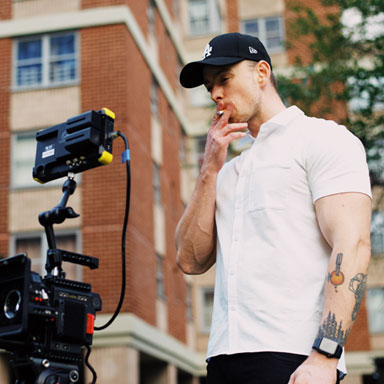‘I’m Thinking of Ending Things’
She’s reasoning of finishing things. Anything that her name is. Lucy? Louisa? “The Young Woman,” as star Jessie Buckley in this independent movie is recorded in the credits? It changes like the climate or the shade of her colder time of year coat, shamelessly but then such that you don’t actually see until it begins to snow. He is Jake – it’s dependably Jake (Jesse Plemons). They’ve just been dating for around seven weeks, however seven weeks can be sufficiently long to take shape into its own sort of for eternity. He’s driving her profound into ranch country to meet his folks, and she’s adequately unreasonable to come for the ride, regardless of whether she can’t shake the inclination that both of them are going to arrive at a hopeless crossroads.
Where did that thought come from, and how could it arrive? It just appeared to appear one day, as though somebody had incepted it into the most unfathomable layer of her brain. Yet, it’s genuine. It must be. “You can’t phony an idea,” Jake once told her, and this one is detonating behind her eyes like a light show that no one but she can see despite the fact that it hints all that she checks out.
“You can’t phony an idea.” Those words show up two times in the initial sections of Iain Reid’s 2016 book “I’m Thinking of Ending Things,” that this independent movie is based on. You don’t need to turn the principal page before it’s reasonable why Charlie Kaufman was so attracted to the book, as the producer’s vocation has been molded all of the time by an interest with the tormented – if dramatic – connection between the existence of the psyche and the world that is sifted through it. Kaufman has a fixated on the broke protected, closed off area of human awareness; with the inclination that everybody is conversing with one another through a two-way reflection; with the unreasonable incongruity that our unpreventable self image anti-extremism is the one thing we as a whole share practically speaking.
From “Variation” and “Anomalisa” to his new book “Antkind” and all focuses in the middle, Kaufman’s work depends on characters who are (frequently in a real sense) attempting to break away liberated from their own cerebrums as well as bodies and extenses the gap that confines us from one another. Some of them succeed, some of them bury the hatchet with that hole, and some of them swan jump into it under the hallucination they could ultimately slither out the opposite side. However, by the day’s end, each Charlie Kaufman story actually unloads an alternate endeavor to break out of a similar jail. As Millicent Weems put it in “Synecdoche, New York”: “This is everybody’s insight. Each and every one. The particulars barely matter. Everybody is everybody.” Malkovich Malkovich.
This independent movie “I’m Thinking of Ending Things” feels like both a demonstration of self-spoof for its chief and furthermore an extreme takeoff from his past work, that is on the grounds that it takes Kaufman’s typical obsessions and turns them back to front. While this defective snow globe of a separation in this independent movie is one more peculiar and remorsefully humorous outing into the crack between individuals, it’s not – interestingly – about somebody who’s attempting to cross it. In actuality, Kaufman is currently recounting to a tale regarding the actual fracture. He’s following the undetectable line where Jake closes and the Young Woman starts with the expectation that he could possibly catch it on screen for even one minute, similar to somebody leading a séance for all the dead space between us.
The outcome is a dreamlike, whimsical, and unusually moving experience that circles around an acknowledgment it can’t adequately articulate. Of course, perhaps every Kaufman independent movie could be portrayed like that. As in “Synecdoche” – a rambling, vastly aggressive introduction that guessed how Kaufman’s vision as a chief has now come to match his imagination as a screenwriter – the characters here sink into the independent movie an arrogance as opposed to transcending it, considering a wide range of thrilled “what the hell am I watching?” oddness en route. Criminal as it is that “I’m Thinking of Ending Things” will not have any kind of dramatic delivery, Netflix’s feed-the-calculation reasoning probably makes it the main current studio that would pay for an independent movie that finishes like this one (Godspeed to anybody who attempts to anticipate what occurs in those most recent 15 minutes).
Be that as it may, while Caden Cotard might have employed a substitute, he never became one. Here, then again, the Young Woman never gets an opportunity to be anything more. Kaufman has consistently removed the piss from the hyper pixie beauty queen figure of speech and excoriated the way that men consider delightful ladies void vessels that could hold their missing pieces in general, thus it shouldn’t be astounding that his first independent movie established in female inferiority observes its champion caught in an impressionistic bad dream wherein everything (herself included) is totally entrusted.
But then, for its self-unyielding diversions in general and honorable guilty pleasures, “I’m Thinking of Ending Things” seldom feels like an idea looking for an independent movie. There’s a completion and essentialness to it that radiates through in any event, when the independent movie is wasting time, which is fundamentally all it needs to do. It’s a stunt Kaufman gets off by totally finishing a methodology that his screenplays have played with however long he’s been keeping in touch with them: From the voiceover-driven introduction Kaufman has acquires from Reid’s book, to the gloriously dissociative new consummation he uses to rise above it, “I’m Thinking of Ending Things” feels less like an independent movie about thought than it does a musing that has been recorded.
The accentuation is unpretentious from the outset, articulating itself thoughts through the moving vulnerability of a mental thriller during the long opening drive to Jake’s folks’ home. Is simply the Young woman getting a call from herself? For what reason did she see a pristine swing set outside of a neglected homestead? What’s happening with those contemplative slice ways to a doddering secondary school janitor? Indeed, even when Jake and the Young Woman show up at their for supper, obviously you will not go anyplace with this independent movie by fully trusting it. Watching it through an exacting focal point and attempting to cross examine these characters as though they’re intended to be genuine individuals would be just about as futile as attempting to follow a singular snowflake as it twirls around a snowstorm.
Lashed into the passenger seats of Jake’s vehicle and pressed inside the claustrophobia of ŁukaszŻal’s Academy proportion outlining, the discussion between this destined couples is so tense and desultory that it makes a sort of melodic disharmony with the Young Woman’s inward talk. They talk about Bette Davis and melodic theater and the organic basic that all living things need to make due – Linklater-esque discourse bound with Bergman-esque fear. Kaufman begins to channel this independent movie through his own realistic reference focuses that becomes progressively unequivocal and funny supposedly out of control (these pieces may be the main thing here that is genuinely equipped for being ruined, so we should simply say that “Antkind” fans will be happy to see that Kaufman hasn’t quit burning his companions).
One moment Jake condescendingly explains Wordsworth, and the following the Young Woman discusses a scorching unique sonnet from memory (really crafted by Eva H.D.). Here and there the camera floats over to her face as though it’s staring off into space. Daydreaming. He’s discussing their future while she’s pondering how they’re not going to have one. They’re under a foot separated, but then and still, after all that the truth is still excessively abstract for them to share.
It’s difficult to tell how somebody plays that, yet Kaufman’s phenomenal cast sorts it out. Wavering between pitiable cluelessness and unstable disappointment until you begin to speculate Jake’s holding a “Get Out”- commendable confidential in the cellar of his folks’ home, Plemons’ timid exhibition uncoils at the perfect speed until Kaufman at long last lets him off the chain to show his reach. Yet, this is Buckley’s show, and she further concretes her status as one of the gutsiest and most natural entertainers on the planet – flexible and alive such that establishes the independent movie in the present time and place, even after it’s become unstuck on schedule.
A portion of the things she’s approached to do here are basically uncommon in this independent movie, yet Buckley inclines toward them with such risk everything effortlessness that you barely clock the abnormality. In her audit of “A Woman under the Influence,” Pauline Kael composed that “Gena Rowlands is an extraordinary entertainer, yet nothing she does is significant on the grounds that she accomplishes such a great deal.” Buckley generally does the perfect sum. She conveys the idleness of being seeing someone’s past its termination date, and furthermore the white-hot dread of understanding that it will not simply end all alone. It’s a presentation that figures out how to be at the time and outside of it immediately, as though Buckley were both the subject of a Wyeth’s painting and all the while the individual checking it out.
Toni Collette and David Thewlis are undeniably more increased in supporting jobs, the two of them radiating in from “The Twilight Zone” or a Grimm’s’ fantasy as they play Jake’s folks like an outsider’s body-snatchers who got to the house early and are wearing the property holders’ skin. Robert Frazen’s buggy altering backs up the entertainers’ greatest decisions via cutting the center of the independent movie into a temporal slipstream where everybody is so nostalgic for the past; and froze for the future that, they become too confused to even think about working in the present. Everybody in Jake’s home feels like they’re dead and willfully ignorant with regards to it – even the family canine.




